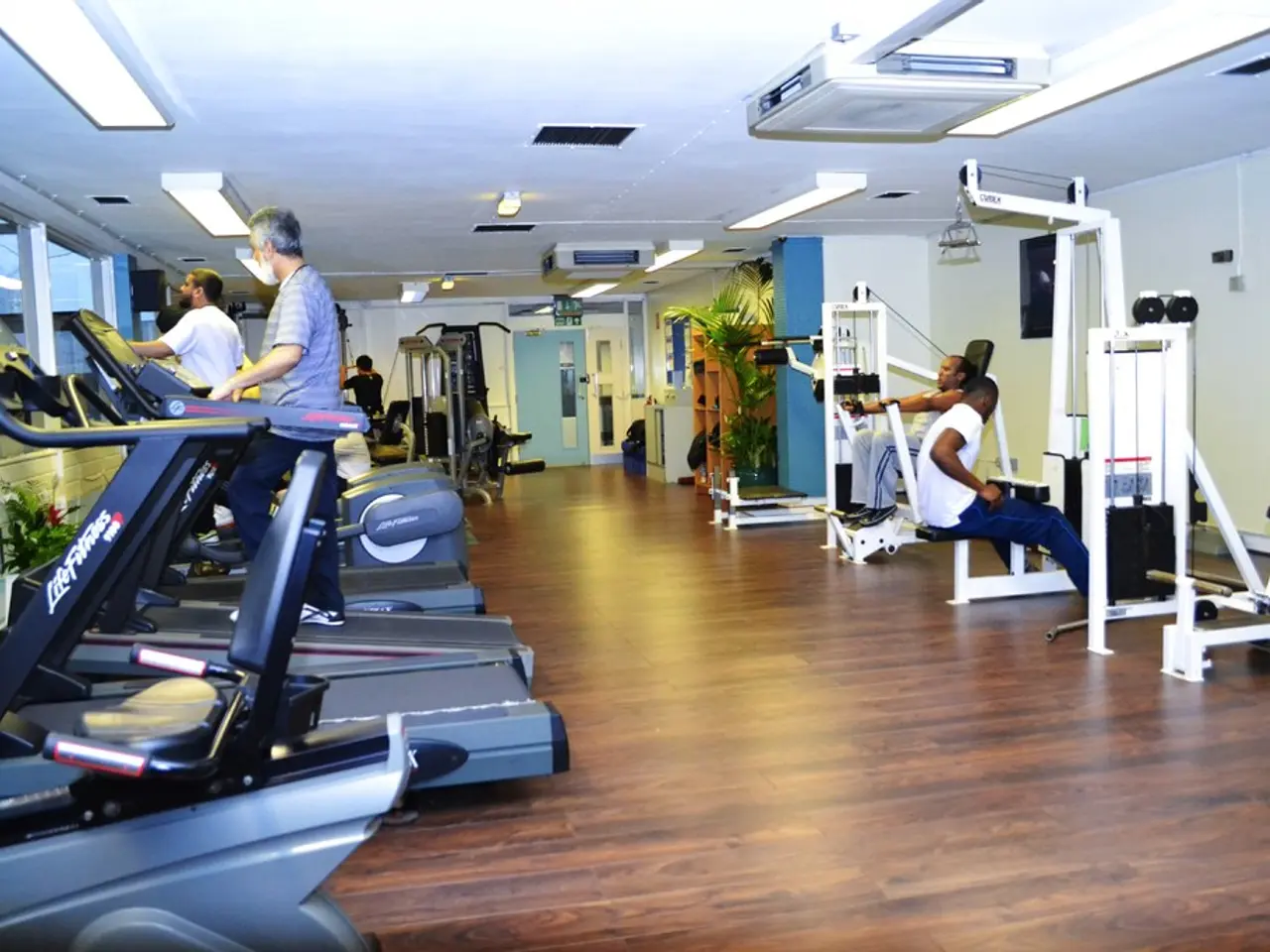Exercises to Combat Erectile Dysfunction (ED): A List of 6 Fitness Regimens
Erectile dysfunction (ED) is a common condition that affects many men, but help is available beyond medications like Viagra. This article explores various treatment options, from natural supplements and herbal remedies to mechanical devices, injections, surgery, regenerative therapies, psychological and lifestyle approaches.
One such natural supplement is L-Arginine, an amino acid that boosts nitric oxide production, relaxing blood vessels and enhancing blood flow to the penis. Panax Ginseng, often called "herbal Viagra," is another option that improves energy, stamina, and nitric oxide production, which can reduce ED symptoms. Other supplements include ginkgo biloba, Rhodiola rosea, maca, and ashwagandha, which may support erectile health and stress reduction.
Mechanical devices like vacuum erection devices (penis pumps) are non-invasive and doctor-approved alternatives for men who can't or don't want to use oral medications. Injections like Trimix, a mix of vasodilators directly injected into the penis, can help induce erections. For severe cases, surgically implanted devices like inflatable penile prostheses are available.
Regenerative therapies such as P-Shot® (Platelet-Rich Plasma Therapy) and GAINSWave® Therapy are emerging treatments that aim to improve blood flow and tissue health in the penis, potentially enhancing erectile function.
Psychological and lifestyle approaches are also crucial in managing ED. Sex therapy and counseling can address emotional, psychological, or relationship issues that contribute to ED. Lifestyle modifications, such as improving diet, exercise, quitting smoking, and reducing alcohol intake, support erectile health.
Aerobic exercises, such as cycling, spinning classes, boxing, running, skipping, can help people with ED, with the best results seen for those who practice four times a week. Pilates exercises like knee fallouts, supine foot raises, and pelvic curls specifically target the pelvic floor muscles, activating them and helping improve erections.
Performing Kegel exercises can take 4-6 weeks before a person notices a difference in erections. These exercises can be performed while lying down, sitting, or standing. A combination approach to therapy, including medications and therapy, can yield positive results in treating ED.
Consulting a healthcare provider is essential to select the safest and most effective treatment based on individual health status. Making lifestyle changes, such as adjusting the diet and performing exercises, can improve a person's overall health in the long term and reduce the need for medication. Following dietary guidelines and limiting the intake of alcohol and foods with added salt, sugar, and fat can help reduce the risk of developing ED.
In some cases, medications like PDE5 inhibitors (such as Viagra) may be prescribed for ED. However, these options provide a broad range of alternatives tailored to different causes and severities of ED, offering comprehensive management for this common condition.
- HIV, a viral infection, can lead to ED as a secondary symptom, emphasizing the importance of maintaining overall health.
- Sclerosis, a degenerative condition, can also affect the nervous system and lead to impotence, underscoring the need for comprehensive healthcare.
- Diabetes, a chronic disease, has a strong link with ED due to its impact on blood flow and neuropathy.
- Types of vaginal health issues in women can contribute to ED in their male partners.
- Science has been investigating the role of AQ (Amyloid Quencher) in treating Alzheimer's disease and its potential effects on ED.
- Multiple sclerosis, an autoimmune disorder, affects the central nervous system and may cause ED due to nerve damage.
- Depression, a mental health issue, is often linked with ED, with treatments including psychological counseling and medications like SSRIs.
- Psoriatic arthritis, a type of inflammatory arthritis, can lead to ED due to the inflammation affecting blood vessels.
- COPD (Chronic Obstructive Pulmonary Disease) and ED share a connection due to poor blood oxygenation affecting the blood vessels.
- Health-and-wellness practices, such as nutrition, fitness-and-exercise, and mental-health management, contribute significantly to ED prevention and treatment.
- Herbal remedies like ginkgo biloba, Rhodiola rosea, maca, and ashwagandha may support not only erectile health but also reduce stress and anxiety, aligning with the holistic approach of the health-and-wellness industry.




